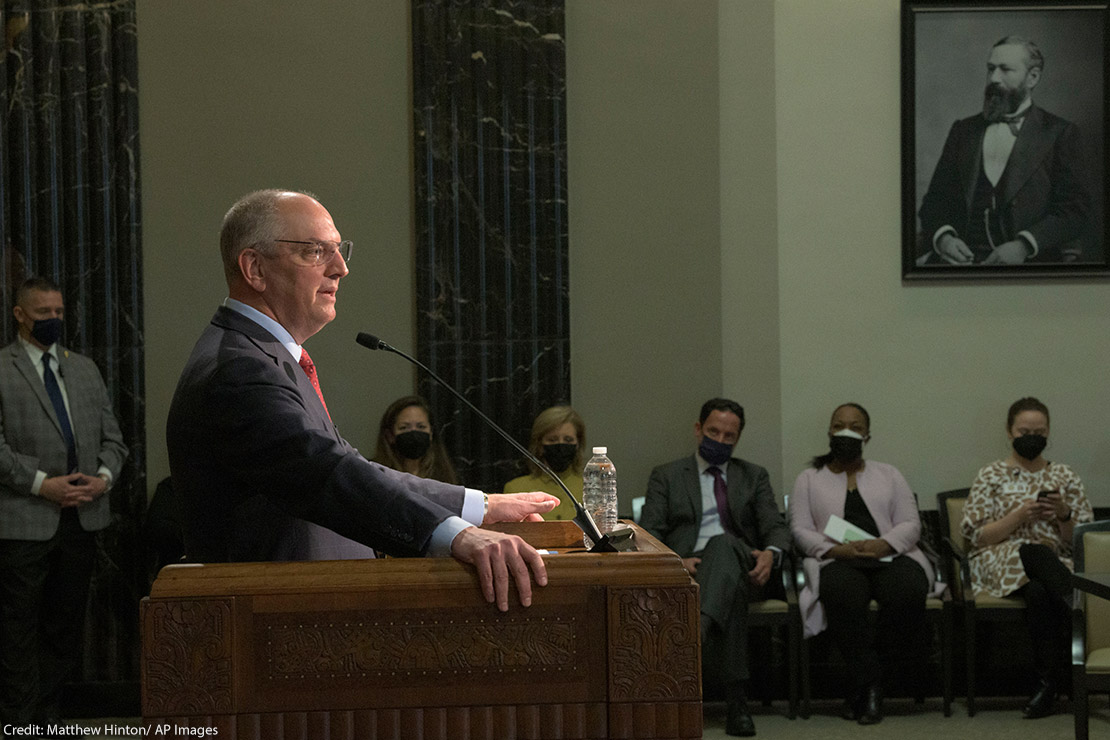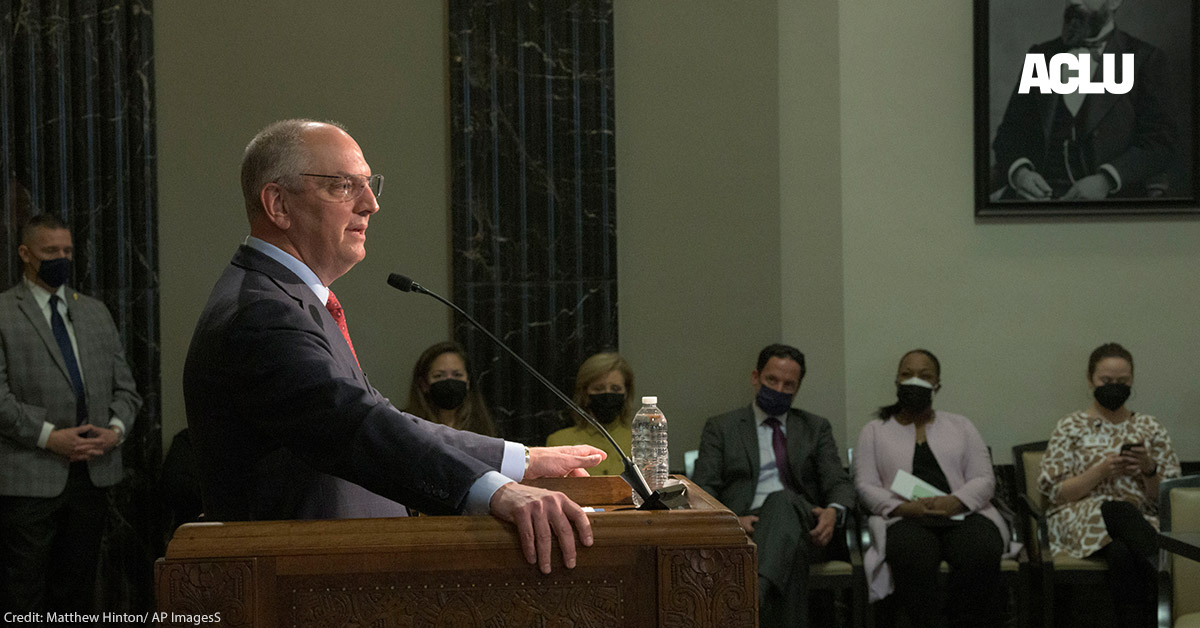The governor of Louisana has a unique chance to ensure that Black Louisianans have an equal opportunity to participate in the political process and elect candidates of their choice to Congress. That’s why the ACLU and our coalition partners in the region are calling on Gov. Jon Bel Edwards to veto the proposed congressional and state legislative districting plans, submitted to his office by the Louisiana State Legislature.
HB 1 and SB 5, the proposed congressional districting plans passed by the Louisiana State Legislature, as well as HB 14 and SB 1, the proposed state legislative plans, violate Section 2 of the Voting Rights Act of 1965. The new maps fail to provide Black voters in Louisiana an equal opportunity to participate in the political process and elect candidates of their choice. The failures of the maps are particularly concerning because of the population growth and shifts in Louisiana over the last 10 years.
According to the new Census data, the number of Black people in Louisiana increased by 3.78 percent between 2010 and 2020. And the total number of Black Louisiana residents over the age of 18 — the Black Voting Age Population (BVAP) — increased by 7.21 percent. Furthermore, Louisiana’s total population growth since 2010 was driven by growth in minority populations. For example, per the 2020 Census data, in the Shreveport area (including Bossier, Caddo, and De Soto Parishes), the overall population decreased by 1.3 percent, but the region’s Black population grew by 2.14 percent.
Under the current congressional district maps, Black Louisianans are severely underrepresented. Louisiana’s voting-age population is nearly one-third Black; however, Black voters in Louisiana only have an opportunity to elect candidates of their choice in one of the six congressional districts (i.e., 16.7 percent of the districts).
Under the current state legislative district maps, just 37 out of the 144 (25.69 percent) members of the Louisiana Legislature are Black, even though Black residents comprise 33.1 percent of the state’s population. Of these Black legislative members, all but one were elected from single-member majority-minority districts. And that single outlying district has a BVAP close to 50 percent, which is high enough to make it possible for Black voters to elect their candidate of choice. This is a direct consequence of the configuration of Louisiana’s legislative districts.
The 2020 congressional election results reflect the state’s racially polarized voting patterns. In the five districts comprised of a majority of white voters, there were three elections in which voters had a choice between Black and white congressional candidates. In each, the white majority elected white candidates, defeating the Black-preferred candidates and underscoring the importance of enacting more majority-minority districts.
Under the current congressional and state legislative maps, Black voters in Louisiana have less opportunity to elect candidates of their choice than white voters. Instead of using the redistricting process as an opportunity to correct the long-standing dilution of Black voting strength in Louisiana, the state legislature introduced HB 1, SB 5, HB 14, and SB 1, all of which would further entrench and exacerbate the dilution of Black voting strength in the state over the next 10 years.
In all 50 states, especially Louisiana, representation is important. It not only promotes the trust needed for the successful relationship between governors and the governed in any democratic society, but also promotes fairness. To live up to the tenets of a representative democracy, the Louisiana State Legislature must reflect the richly diverse population it serves.
Date
Friday, March 4, 2022 - 3:00pmFeatured image




